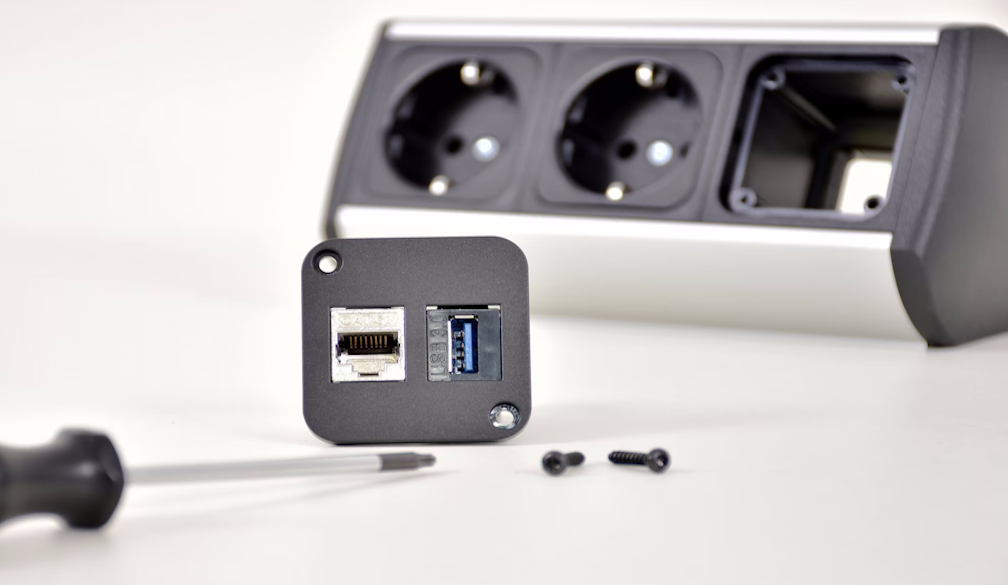How to Choose the Best USB to USB C Adapter for Your Devices

In today’s fast-paced digital world, it feels like technology evolves every other week. One of the biggest shifts in recent years is the transition from the traditional USB-A ports to the sleeker, faster USB-C ports. While many new laptops, tablets, and even smartphones have embraced USB-C, most of us still own plenty of devices and accessories that use the older USB-A connectors. That’s where a good usb to usb c adapter comes in.
But with so many options on the market, how do you know which one to choose? If you've ever searched for one online, you already know the results can be overwhelming. Don't worry in this article, we'll walk you through what matters when selecting the best adapter for your needs.
Understand what you need it for
Before you start browsing Amazon or wandering through tech aisles, take a moment to figure out what you'll be using the adapter for. Do you need it to connect an old flash drive to your new MacBook? Or are you trying to use a USB keyboard with your USB-C-only tablet?
Understanding the purpose helps you focus on the right features. For example, if you’re just transferring small files occasionally, almost any usb to usb c adapter will get the job done. But if you're connecting something like an external hard drive or using it for charging, you’ll want to be a bit more selective.
Check for USB standards and speeds
Not all adapters are created equal. One of the first things to look at is which USB standard the adapter supports. The main ones you’ll come across are USB 2.0, USB 3.0, and USB 3.1 or higher. Here’s what that means in real-world terms:
- USB 2.0: Slower transfer speeds (up to 480 Mbps). Fine for keyboards, mice, and basic flash drives.
- USB 3.0 / 3.1: Much faster (up to 5 Gbps or more). Ideal for transferring large files or working with external drives.
If speed matters to you and it often does go with an adapter that supports at least USB 3.0. That way, you won’t be stuck waiting forever for files to move.
Build quality matters
It’s tempting to go with the cheapest option, especially when it’s “just an adapter.” But poor-quality adapters can cause all sorts of headaches, from unreliable connections to even damaging your devices.
Look for adapters that feel sturdy, not flimsy. Aluminum casings tend to be more durable than plastic ones and are better at heat dissipation. A snug fit is also important the last thing you want is for your connection to cut out every time you shift your laptop on the couch.
Some adapters also include built-in strain relief, which helps prevent the cable or connector from wearing out over time. It might seem like a small detail, but it can make a big difference in daily use.
Don’t overlook compatibility
Another crucial thing to double-check is compatibility. Most usb to usb c adapters are pretty universal, but it’s always smart to scan the product description for any exclusions.
Make sure the adapter works with your specific device, whether that’s a MacBook, Chromebook, Android phone, or Windows PC. Some adapters are optimized for particular ecosystems, and while they might still function with other devices, they may not perform as expected.
Also, if you’re planning to use the adapter for charging, make sure it supports power delivery (PD). Not all of them do, and using an adapter without PD might result in super-slow charging speeds or no charging at all.
Think about extra features
Sometimes a basic usb to usb c adapter is all you need. But other times, you might benefit from added functionality. Some adapters come with multiple ports, allowing you to plug in several USB-A devices at once. Others include slots for SD cards or HDMI output.
If you’re often working from a laptop with limited ports, consider investing in a small hub instead of a simple adapter. It might cost a bit more, but the convenience can be worth every penny.
And if you travel frequently, look for a compact design that won’t add bulk to your bag. Some even come with handy keychain loops so you’re never stuck without one when you need it most.
Price vs. value
We all love a good deal, but it’s worth remembering that the cheapest option isn’t always the best. That said, you also don’t need to drop $40 on a single adapter unless it offers premium features or exceptional build quality.
Try to find a middle ground something well-reviewed, built to last, and reasonably priced. Checking customer reviews can help weed out the lemons, and many reputable brands offer warranties in case anything goes wrong.
Final thoughts
A usb to usb c adapter might be a small piece of tech, but it plays a big role in keeping your devices connected. Whether you’re working from home, editing photos on the go, or just trying to charge your phone, having the right adapter can make your tech experience smoother and more efficient.
So before you click “buy,” take a few moments to consider your needs, check the specs, and choose a product that fits your everyday life. With the right usb to usb c adapter in your bag or desk drawer, you’ll never be caught off guard by the ever-evolving world of connectivity.








